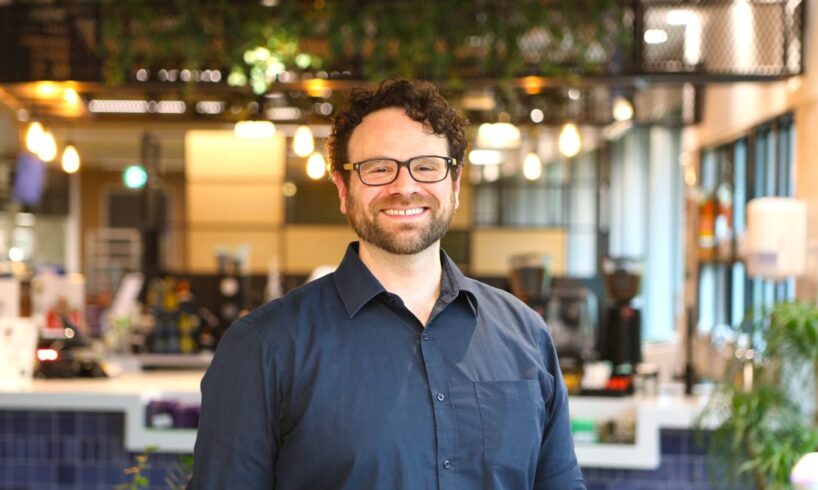
Fidelity Investment’s Michael Dascal discusses how 2025 is the year for quantum exploration, particularly within the finance space.
As noted by Fidelity Investment’s vice-president of quantum technology Michael Dascal, 2025 has been a banner year for quantum technology, exploration and innovation, as it marks an incredibly important centenary.
“100 years ago, in 1925, Heisenberg, Born and Jordan submitted what we call the three-man paper, which was the paper that first formalised quantum mechanics as we know it,” Dascal told SiliconRepublic.com. “In celebration of that, the UN has declared 2025 to be the International Year of Quantum Science and Technology.”
Now, a century after that first paper, the quantum space has evolved far beyond what anyone back then may have thought possible. He explained that globally, the quantum ecosystem – not just in the world of finance, but also in pharmaceuticals, material sciences, logistics and manufacturing – is working collaboratively to find better ways to apply its technology.
All being industries noted by Dascal as having cases and scenarios in which quantum has real potential to make processes significantly more efficient. Specifically, when it comes to the global financial industry, he said, there are two main ways that experts can try to find these applications: theoretical and experimental.
“On the theoretical side, these are cases where it really is quite certain that we have applications. In fact, a great example is the proof that quantum computers will eventually cause a threat to our cybersecurity.
“This was proven back in 1994 by Peter Shor, who, using mathematics, showed that a quantum system would be able to break the mathematical problem that we rely on to keep our systems safe.”
The experimental aspect can be somewhat tricker, added Dascal, who explained this involves looking for motivations from quantum theory, where you might think a quantum computer is going to perform better at solving certain problems, then conducting an experiment to prove your point.
“Now, this can be very fruitful, but it’s also a little bit trickier because, you know, it’s a little bit uncertain when you’re using toy models or toy data to know how that’s going to scale up to a real-world case.”
Are organisations ready?
For virtually every business, institution and individual worldwide, cybersecurity is a frequent topic of conversation. Perhaps now more than ever, as global politics shift and threats become increasingly sophisticated. Quantum, while bringing significant innovation, also poses a risk.
“There’s a quantum threat, and here we’re seeing the fintech ecosystem as a whole, as well as governments, regulators and other stakeholders, really work to make sure that we’re preparing our financial services infrastructure ahead of when that threat arrives,” said Dascal.
He further explained that he has found himself impressed by how many stakeholders are willing to collaborate to ensure that they and others are prepared for this inevitability.
“We have our research efforts within Fidelity, but we also have regulators that are starting to think about it and we have infrastructure providers that are starting to think about it. So, I’m confident that when we start having these use cases and applications ready for production, that path has largely been paved already.”
Want to get involved?
Undoubtedly, for professionals in the deep-tech space, a career in quantum – while not 100pc secure – does offer a degree of future-proofing that many will find appealing in an increasingly uncertain working landscape. While it is a career that will likely demand a third-level education and even a PhD, Dascal noted some companies may hire based on skill.
“If you’re interested in getting involved in quantum applications for financial services, you really do need to have a firm grasp of quantum technology and quantum information theory. Generally, this has required a PhD, though I will say that I’ve started to see some companies who are requiring only a master’s degree or a nice portfolio of work that demonstrates expertise.
“In either case, though, I’d say now’s the time to get started.”
Don’t miss out on the knowledge you need to succeed. Sign up for the Daily Brief, Silicon Republic’s digest of need-to-know sci-tech news.





